Posts Tagged With: airlines
There are 11 articles tagged with “airlines” published on this site.
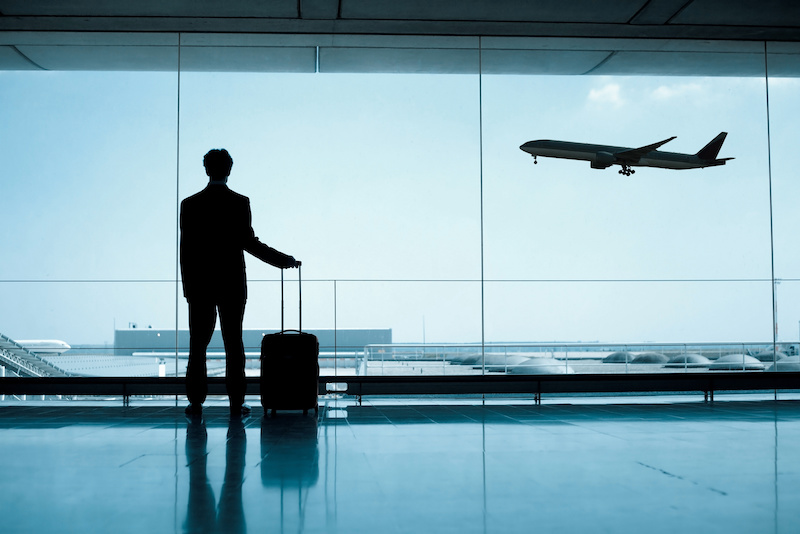
Throughout 2022, Americans have experienced an unacceptable level of flight delays and cancellations. When these disruptions occur, airlines are required to support passengers based on commitments made in their customer service plans, Read the rest of this entry »
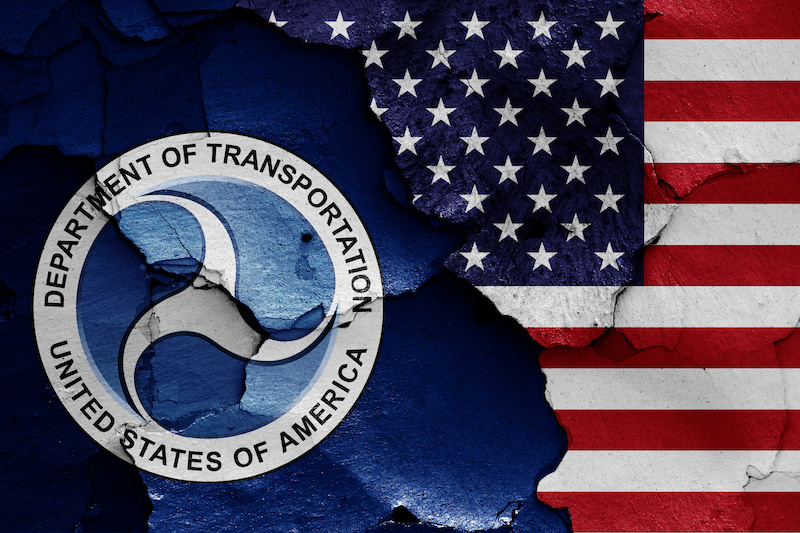
On the heels of a number of Congressional representatives introducing the Cash Refunds for Flight Cancelation Act, the U.S. Department of Transportation (DOT) has announced a proposed rule for public comment, which, if adopted, would significantly strengthen protections for consumers seeking refunds for airline tickets. Since early 2020, the Department has received a flood of air travel service complaints from consumers with non-refundable tickets who did not travel because airlines canceled or significantly changed their flights or because the consumers decided not to fly for pandemic-related reasons such as health concerns. Read the rest of this entry »
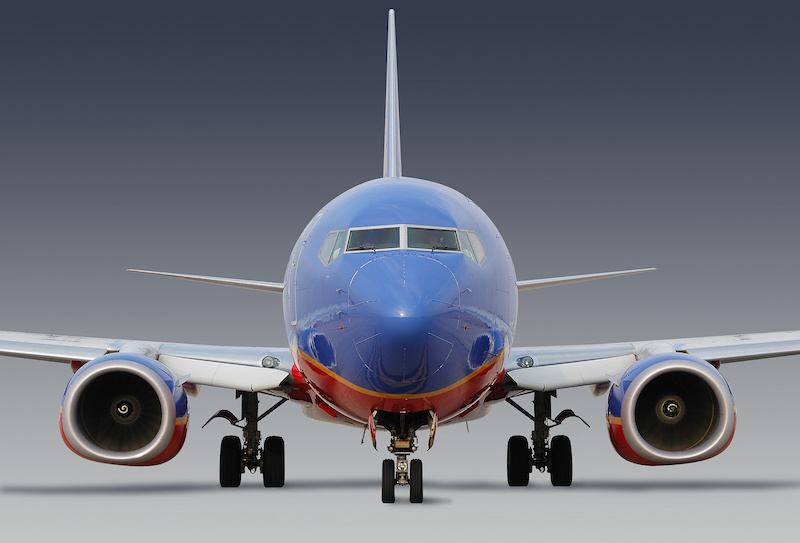
Higher prices, delays, cancellations and bigger crowds are taking a toll on the satisfaction rating passengers assign their airlines. Load volume is up, and prices are up, but according to the J.D. Power 2022 North America Airline Satisfaction StudySM, satisfaction is down. Read the rest of this entry »
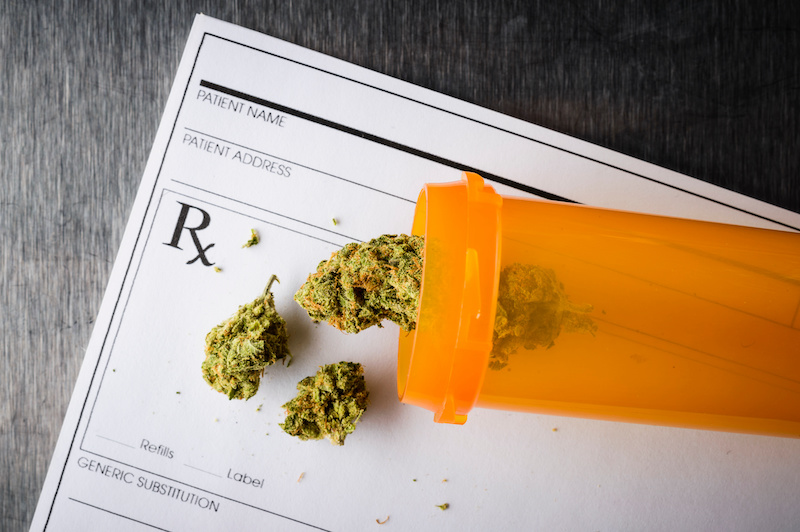
With 33 states now allowing some form of medical marijuana, and recreational marijuana legal in 18 states and Washington, DC, you may assume traveling with medical marijuana is easy. However, the difference between the various state and federal governments increases the risk and could lead to an arrest or other complication.
The U.S. Drug Enforcement Administration classifies cannabis as a Schedule I type of drug which declares the plant as a substance with currently no accepted medical usage, lacks accepted safety for use under medical supervision, and has a high potential for abuse.
The Transportation Security Administration (TSA) maintains that since marijuana is illegal under federal law it is prohibited and will be confiscated if found. The TSA is lenient in terms of marijuana searches indicating its screening procedures are designed to identify potential threats to passengers and aviation and focused on security their officers are not actively looking for marijuana or other drugs. Though technically required to inform law enforcement, the TSA tends to be somewhat lenient in their procedures and, particularly if the passenger is carrying a medical marijuana card, will sometimes merely throw the confiscated items away or even return it. Delta Air Lines, Alaska Airlines and American Airlines ban medical marijuana from their aircraft, even if you have a medical card. Amtrak’s policy indicates “The use or transportation of marijuana in any form for any purpose is prohibited, even in states or countries where recreational use is legal or permitted medically.”
Although traveling with cannabis via a plane or boat is illegal under U.S. law, there is still another way to travel within the United States without being penalized through the medical cannabis reciprocity program. The program allows a patient to purchase, possess, and use medical marijuana in another state if he has a valid medical cannabis card issued by the state where he is a resident.
Some states require non-residents to sign up for medical cannabis program and pay a fee beforehand. States like Oregon limit the amount of cannabis non-residents can bring. Lastly, remember that the program is solely applicable to medical marijuana only. Carrying official documents demonstrating the medical nature of the marijuana you are carrying is a necessity. When traveling to a state with reciprocity, travelers should be certain their medical marijuana card is not expired.
It is illegal to carry medical marijuana in a state where medical use is not permitted. Likewise, traveling internationally with medical marijuana risks very harsh penalties.
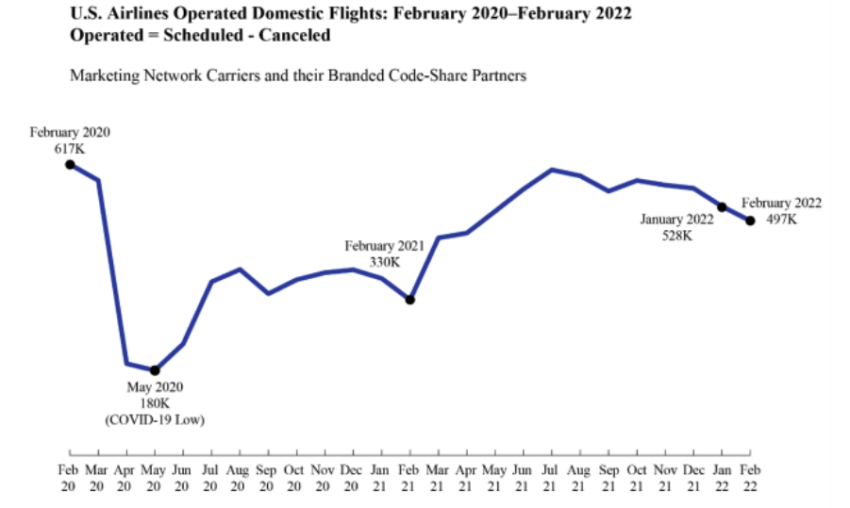
The U.S. Department of Transportation today released its Air Travel Consumer Report (ATCR) on airline operational data compiled for the month of February 2022 for on-time performance, mishandled baggage, mishandled wheelchairs and scooters, complaints received, and oversales.
The ATCR is designed to assist consumers with information on the quality of services provided by airlines. It also contains information on complaints involving passenger and baggage security screening received by the Transportation Security Administration.
In February, the COVID-19 pandemic continued to result in significant changes to airline schedules and operations. The 496,531 flights operated in February 2022 were 87.9% of the 564,614 flights operated in pre-pandemic February 2019. Operated flights in February 2022 were up 50.5% year-over-year from the 329,969 flights operated in February 2021 and down 6.0% month-over-month from the 528,070 flights operated in January 2022.
In February 2022, the 10 marketing network carriers reported 519,952 scheduled domestic flights, 23,421 (4.5 %) of which were canceled. In February 2021, the same airlines reported 350,170 scheduled domestic flights, 20,201 (5.8%) of which were canceled. In January 2022, airlines scheduled 563,737 domestic flights, of which 35,667 (6.3%) were canceled.
February 2022 On-Time Arrival
In February 2022, reporting marketing carriers posted an on-time arrival rate of 76.6%, up from 75.3% in January 2022 and 73.8% in pre-pandemic February 2019. The year-to-date on-time arrival rate for 2022 is 75.9%.
Highest Marketing Carrier On-Time Arrival Rates February 2022 (ATCR Table 1)
1. Hawaiian Airlines – 87.1%
2. Delta Air Lines Network – 82.8%
3. Alaska Airlines Network– 82.8%
Lowest Marketing Carrier On-Time Arrival Rates February 2022 (ATCR Table 1)
1. JetBlue Airways – 61.8%
2. Allegiant Air – 65.1%
3. Frontier Airlines – 68.0%
February 2022 Flight Cancellations
In February 2022, reporting marketing carriers canceled 4.5% of their scheduled domestic flights, lower than the rate of 6.3% in January 2022 and 3.1% in pre-pandemic February 2019.
Lowest Marketing Carrier Rates of Canceled Flights February 2022 (ATCR Table 6)
1. Hawaiian Airlines – 0.2%
2. Alaska Airlines Network – 1.5%
3. Delta Air Lines Network– 2.4%
Highest Marketing Carrier Rates of Canceled Flights February 2022 (ATCR Table 6)
1. American Airlines Network – 7.2%
2. Allegiant Air – 5.7%
3. JetBlue Airways – 5.1%
Mishandled Baggage
In February 2022, reporting marketing carriers handled 32.0 million bags and posted a mishandled baggage rate of 0.60, a lower rate than the January 2022 rate of 0.81% and the pre-pandemic February 2019 rate of 0.63%.
In the previous three calendar year reports (2019 to 2022), the Department calculated the mishandled baggage rate based on the number of mishandled bags per 1,000 checked bags. The Department is now displaying the mishandled baggage data as a percentage (i.e., per 100 bags enplaned). This is consistent with the manner that the mishandled wheelchairs and scooters rate is calculated and displayed.
Bumping/Oversales
Bumping/oversales data, unlike other air carrier data, are reported quarterly rather than monthly.
For the fourth quarter of 2021, the 10 U.S. reporting marketing carriers posted an involuntary denied boarding, or bumping, rate of 0.23 per 10,000 passengers, higher than the rate of 0.16 in the third quarter of 2021 and the rate of 0.03 in the fourth quarter of 2020.
The full report can be found here: https://www.transportation.gov/briefing-room/air-travel-consumer-report-february-2022-numbers
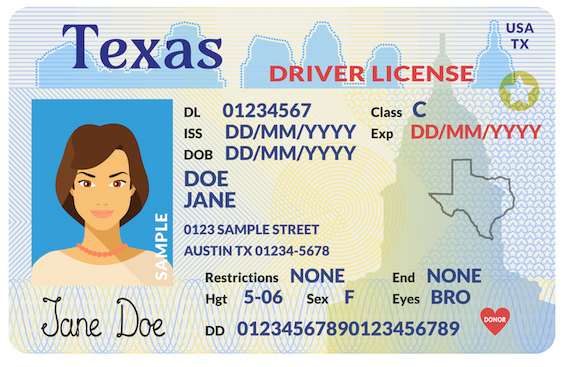
More than 15 years after it was enacted, the number of Americans with driver’s licenses or identification cards that are REAL ID-compliant remains low.
The enforcement deadline for the REAL ID Act is drawing near. Starting May 3, 2023, the Transportation Security Admission (TSA) will require travelers ages 18 years old and above to present either the new REAL ID-compliant driver’s license or valid compliant identification cards, to fly domestically. Yet, the number of Americans with Real ID-compliant identification is low. A passport is an acceptable form of identification and may be used in lieu of a REAL ID Drivers License or ID to board domestic flights and visit federal facilities.
The U.S. Congress passed into law the REAL ID Act in 2005, a recommendation from the 9/11 Commission asking the federal government to set standards in terms of the issuance of sources of identification. The Act sets “minimum security standards for state-issued driver’s licenses and identification cards as well as prohibits federal agencies from accepting licenses and identification cards from states that do not meet these standards for official purposes, such as getting through the airport security checkpoint to board a plane.”
Soon after it was enacted, the TSA announced the REAL ID Act as the new identification system to travel domestically. Fast forward to 2020, after more than 15 years of repeated delays and extensions, the number of state-issued driver’s licenses and identification cards that are REAL ID-compliant was only 34%.
Survey data released in 2020 by the U.S. Travel Association showed a lack of awareness regarding the REAL ID-compliant driver’s licenses and cards among Americans, the majority of whom do not have one or are confused about how to get one. As a response, the DHS announced a new implementation date, which was October 21 of the same year. A month after, however, the deadline was pushed back again and was moved to May 3, 2023, due to “circumstances” created by the COVID-19 pandemic.
The agency also launched an awareness campaign in January of last year to encourage Americans to comply. Still, the number of REAL ID-compliant driver’s licenses and identification cards remains low, with 43% having compliant ID at the end of 2021.
The slow adoption seems to revolve around disparities in application procedures among the 50 states, which varies from one state to another.
To know more about the process, visit TSA’s official webpage at REAL ID | Transportation Security Administration

Despite protests from airlines and travel industry associations, the CDC has extended the transportation mask mandate for an additional 15 days, citing the ongoing risk of infection from recent surges of Covid-19 in the United States.
“CDC continues to monitor the spread of the Omicron variant, especially the BA.2 subvariant that now makes up more than 85% of U.S. cases,” said CDC spokesperson Kristen Nordlund. “Since early April, there have been increases in the 7-day moving average of cases in the U.S. In order to assess the potential impact the rise of cases has on severe disease, including hospitalizations and deaths, and health care system capacity, the CDC Order will remain in place at this time. The Transportation Security Administration (TSA) has decided to extend the security directive and emergency amendment for 15 days, through May 3, 2022.”
The mask mandate was scheduled to end next week after April 18th. The CDC has repeatedly extended the requirement to wear masks over the duration of the Covid-19 pandemic. However, the current 15-day extension is the shortest yet mandate extension.
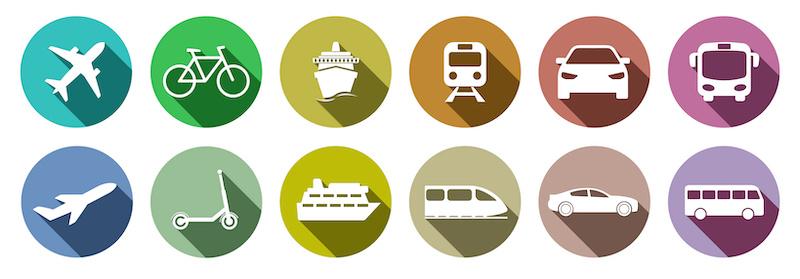
Uber is planning to create a “superapp” that will include aircraft, trains, and rental vehicles, partnering with airlines, railroads, and rental car companies to provide a seamless experience for customers who want to travel.
The announcement was made by the regional manager for the UK, Jamie Heywood, who said, “Ultimately, we want to make it as easy to move people around the world as today to order a Uber, a one-stop-shop for all your travel needs.”
They also plan to incorporate flights, hotel accommodation, and even Eurostar train tickets by integrating leading partners
The app is expected to be launched in the U.K first, with other markets to follow. There is no set date for when the app will be available to the public.

Six out of every 1,000 checked bags in US airlines were reportedly lost, stolen, or mangled in the second half of 2021, according to the report conducted by LuggageHero.
The travel industry is back on track again and as the world slowly adapts and transitions to the “new normal,” more people across the globe are looking to travel this year.
But for all of the wonderful things travel’s return means for travelers, it also sages a return of mishandled luggage as a side effect of the surge.
LuggageHero, a luggage storage service locator, annually produces a report highlighting the number of bags the airline lost and mishandled last year. According to the report, a total of 1,251,209 out of 220 million checked bags, or about 6 out of every 1,000 pieces of luggage pass through the airline’s hands. These figures, according to LuggageHero are 80.6% worse than the first half of 2021.
The report also indicates the best and the worst airlines in terms of travel baggage management. Envoy Air ranked worst followed by American Airlines. From July to December last year, the two airlines have reportedly lost and mishandled 9.04 and 8.62 bags per 1,000 luggage, respectively.
Allegiant Air scores the highest in terms of safe baggage handling. For the past four years, the airline lost 1.85 bags only out of 1,000 in the second half of 2021. Allegiant Air is followed by Frontier Airlines and Hawaiian Airlines.
December appears to be the worst month for your luggage’s chances of arriving at your destination with you, while September is the safest.
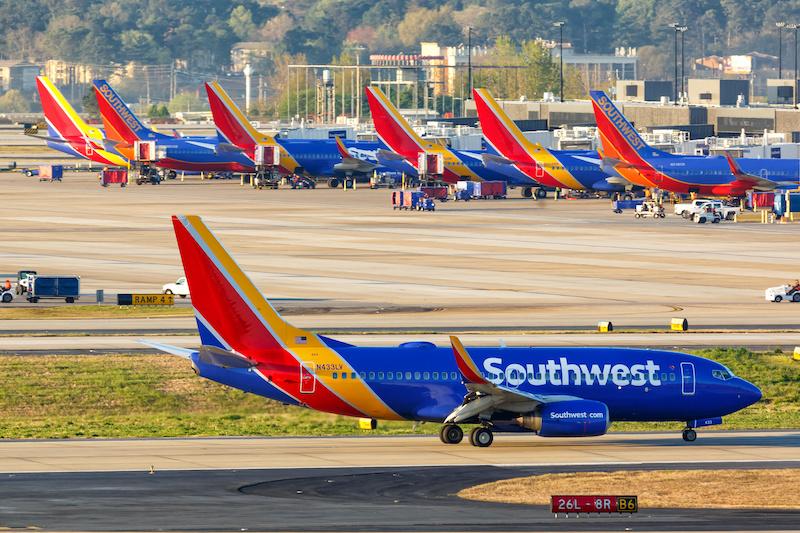
Air travel in the U.S. encountered major disruptions over the weekend with approximately 3,500 flight cancellations. As of Monday, there were 470 canceled flights and 690 delayed flights, according to FlightAware, a flight tracker app and website.
Weather in Florida and the Southeast were some of the reasons for this disruption and airspace congestion added to the cancellations and delays. Airports greatly affected by the flight cancellations include those in Miami, Orlando, Tampa, New York, and Baltimore.
On Southwest, 10% of its scheduled flights were canceled on Sunday. On the same day, flight cancellations for each airline varied with Spirit Airlines having 308, JetBlue having 373, and American Airlines with 271. Meanwhile, Alaska Airlines’ flight cancellations affected around 37,000 customers though the reasons for the cancellations were not elaborated. As a whole, there were 1,659 flight cancellations and around 5,700 delayed flights.
Although flight cancellations were high on the weekend, Monday saw a decrease. A JetBlue spokesperson told the press that these cancellations will help in reorganizing their operation to be back in position for air travel.
Meanwhile, projected cancellations on Tuesday are 23 within, into, or out of the U.S. with 74 delays, according to FlightAware.

Pack your bags for that long-awaited vacation! Seattle-Tacoma International Airport (SEA) welcomes today’s announcement that Air Tahiti Nui will begin nonstop service to Papeete, Tahiti (PPT) on October 5, 2022.
The island of Tahiti is almost mythical in its beauty, and along with the rest of French Polynesia, is one of the world’s foremost vacation destinations.
“Seattle is honored to be only the second U.S. destination for Air Tahiti Nui,” said Lance Lyttle, SEA Airport Managing Director. “We’re excited that Seattleites will now have yet another magical destination to explore, whether that’s Tahiti itself or other nearby islands like Bora Bora or Mo’orea.”
Tahiti will be Seattle’s southernmost destination and the first located in the Southern Hemisphere. Air Tahiti Nui will operate the twice-weekly route using a Boeing 787-9 aircraft.
Travelers to Tahiti can look forward to vivid turquoise lagoons, soaring lava-rock peaks, lush tropical forests, and hospitable people. These natural wonders of the islands fill the senses of all those that set foot in Tahiti. As the leading carrier to and from French Polynesia, Air Tahiti Nui’s 787-9 Dreamliner fleet and awarded service will make you feel like you are in Tahiti the moment you step onboard.
“North America is a key market for our destination. So, when we decided to open a second gateway on the West Coast, Seattle was a natural answer for us”, explained Mathieu Bechonnet, Air Tahiti Nui Managing Director. “I would like to thank our partners at Alaska Airlines and the Seattle-Tacoma International Airport for their warm welcome and support in making this happen.”
“Who hasn’t dreamed of visiting Bora Bora? We’re delighted to have Air Tahiti Nui join our array of global airline partners, further connecting the West Coast to the South Pacific,” said Nat Pieper, senior vice president of fleet, finance and alliances at Alaska Airlines. “Our guests are going to love the convenience of a nonstop flight to this amazing destination on an airline that offers world-class service and amenities flying the beautiful Boeing 787-9 Dreamliner aircraft.”
International Service at SEA
Travelers arriving at SEA from Tahiti will enjoy the soon-to-open new International Arrivals Facility, the most complex capital development project in the history of SEA airport. The IAF will dramatically improve connection time, efficiency, and service to millions of annual international travelers.
Air Tahiti Nui’s Tahiti service is the sixth new international service to SEA announced since 2020. Qatar-Doha, WestJet-Calgary, and Alaska-Belize City began service in 2021, while Air Canada-Montreal and Finnair-Helsinki will begin service in summer 2022.



